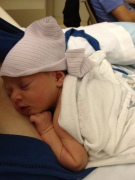It’s no accident that shows like Sex and the City and Girls are so popular. (Ok, maybe I’m a little bit obsessed with Girls right now, sue me.) I’m a die-hard SATC fan (even movie 1, but not movie 2 — shudder — except for one part I’ll get to in a moment), and I love Girls. There is great writing in both shows, yes, and they are both risk-taking and include lots of sex, but what I personally adore about both shows is their focus on female friendships.
These shows celebrate what all women know: there is simply nothing like great girlfriends. In SATC movie 1, the part that gets me to cry every single time is when Carrie rushes to Miranda’s house in the snow in New Year’s Eve so that she won’t be alone. Carrie went through many men (and, though I love Chris Noth, I was never a fan of Mr. Big), but it always came back to the four women. In the second movie, which I highly recommend avoiding, Charlotte and Miranda have a late-night tipsy conversation that is the only moment in the movie that does not reek of frivolity and excess. They commiserate about how motherhood is hard — OK, just watch the clip. And in Girls (spoiler alert!) Jessa comes over to Hannah’s house to take a bath and drown her sorrows. (I can’t say I’ve ever gotten to the level of bathing with my girlfriends, but to each her own.) And when there are conflicts with girlfriends they can be as difficult and heart-wrenching as any fight with a significant other — think about Carrie and Miranda’s falling out in movie 1, or Hannah and Marnie’s blowout at the end of season 1 of Girls. As I wrote about previously, Susannah Sonnenberg’s memoir She Matters explores the passion and friction in her female friendships in a very interesting way.
When I got married, in her toast my friend M. said something to the effect of “Men come and go, but girlfriends are forever.” Setting aside the fact that statement may not have been entirely appropriate for a wedding toast, I do appreciate the sentiment. I hope and expect that Hubs and I will be together forever, but because we met a little later in life our relationship will still never be as long as my friendships with my girlfriends. And while Hubs knows all my ins and outs and I can talk to him about anything, there are some things that are just better understood by a girlfriend.
For example, since Lucy was born, I feel like I have some strange kinship with other moms. Not just my close friends, who I love trading war stories with, but also casual acquaintances. A friend of a friend, who I used to see regularly for dinner with our mutual friend but hadn’t in a long time, had a baby this month. Suddenly after I had Lucy I became very sympathetic to her and bought her a baby gift and made plans to see her. I also feel compelled to regale pregnant friends with advice (since I am such a veteran – HA!), which I hope they don’t feel too annoyed about.
As I’m trying to write about other things I keep coming back over and over again in my mind to this theme of female friendships. Although I worry a little bit about tackling this and seeming too derivative of the shows I talked about in this post, I wonder whether this is speaking to me for a reason and perhaps I need to just go with it and see where it takes me.
